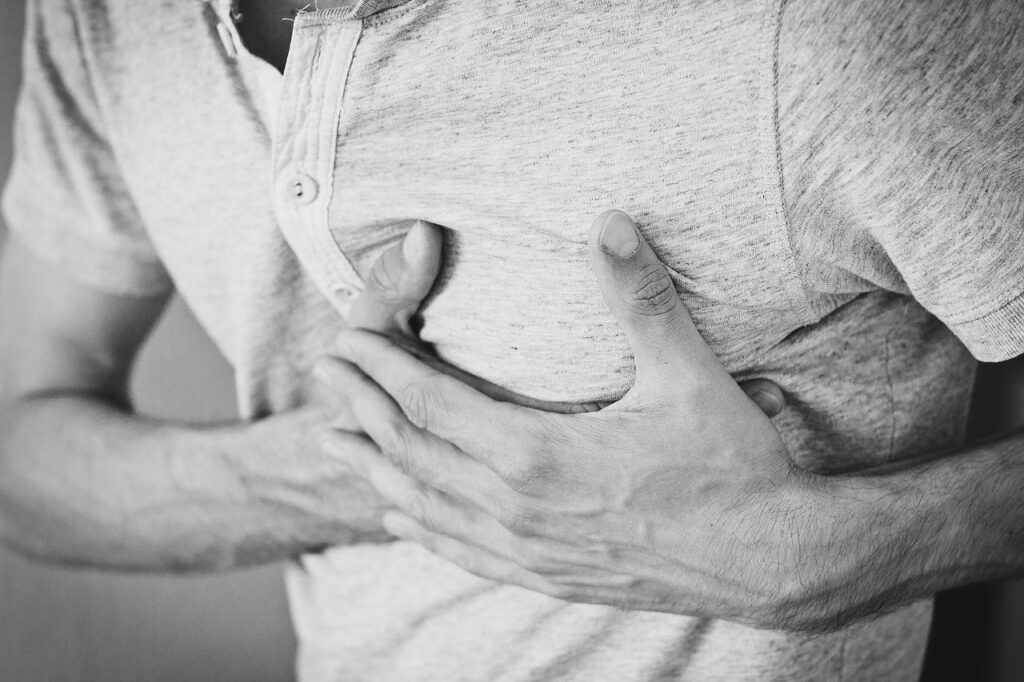It isn’t uncommon to wake up one morning with a bad headache, neck or back pain, or fever. However, many quickly brush it off as common signs of stress. As per the National Center for Health Statistics, hospital emergency rooms across America receive 145.6 million patients annually, but you are likely not keen to contribute to this statistic due to any condition you deem mild. However, some of these symptoms are warning signs of more sinister underlying conditions, so ignoring them does more harm than good. Below are some common health symptoms you should never ignore.
1. Persistent or recurring abdominal pain
Several conditions cause stomach pain; some are serious, others not so serious. Less worrying causes of this pain include food allergies or intolerances, stomach viruses, constipation, and mild food poisoning. However, stomach ulcers, kidney stones, appendicitis, cancer, and inflammatory bowel disorders such as ulcerative colitis and Crohn’s disease are more serious causes of persistent abdominal pain. However, remember that the severity of your pain doesn’t always reflect the condition’s seriousness. For instance, a stomach infection can cause serious stomach cramps, whereas an inflammatory condition like appendicitis may only cause mild pain in its early stages.
2. Chronic fatigue
You may carry a lot of stress and are quick to dismiss any form of tiredness as a normal part of life. However, fatigue that seems very different from routine tiredness and doesn’t alleviate even with enough sleep at night is a major health warning sign. Chronic fatigue is a major sign of depression, an illness that feeds on itself, so you will only become more tired with time. It could also signal a serious problem like Beta Thalassemia if you are anemic. Persistent fatigue may also be due to kidney and heart disease, sleep apnea, and cancer. Your doctor is the best person to consult if you experience chronic fatigue, so you can pinpoint what is causing your extreme tiredness and tackle it appropriately.
3. Sadness that doesn’t disappear
There is no shortage of things that can make you occasionally feel down in the dumps, from a stressful job to relationship problems. However, feelings of sadness that don’t seem to disappear are a major cause for concern. Your seemingly never-ending sadness could be a sign of major depressive disorder, a condition that affects about 17.3 million American adults. Left untreated, it can send you into a downward spiral of even worse moods that can be very hard to come out of. This prolonged sadness is typically accompanied by losing motivation or disinterest in activities you love doing, reckless behavior, and self-loathing. As such, remember to seek immediate help if you notice this disturbing condition and its accompanying signs.
4. Changes in bowel habits or movements
Everyone has unique stool habits. Perhaps you always have to go after your morning coffee or follow a consistent pattern, so it is always easy to tell when your pattern changes. The most concerning signs are persistent diarrhea, a nagging feeling that you have not emptied your bowels fully, constant constipation, and blood in the stool. Many people often don’t want to discuss bowel problems or face them until matters worsen. For instance, many medical experts reveal that abdominal pain often brings people aged 45 and above in for colon cancer. However, the illness could be much worse by then, so it is vital not to ignore the initial symptoms when they rear their ugly heads.
5. Weakness or drooping on one side of the body
It is estimated that about 795,000 Americans experience a new or recurrent stroke every year. Your chances of survival following a stroke are significantly enhanced if someone spots the signs quickly. A sudden uneven smile, numbness, or drooping on one side of the face is a telltale sign of stroke. This symptom could also be accompanied by weakening or numbness in one hand. You could also experience slurred speech when suffering a stroke. It is best to get emergency help to improve survival chances if you notice these warning signs in you or your loved one.
6. Chest pain
Many people who suffer heart attacks don’t suddenly collapse, clutching their chest. Heart attack symptoms can be quite subtle, and many people describe discomforting pressure, pain, or squeezing in the center of their chests that goes away and returns or lasts just a few minutes. You may also feel this pain or tension in your neck or arm and break into a cold sweat. Women are also likely to experience back and jaw pain, nausea, vomiting, shortness of breath, and chest pain caused by heart attacks.
P.S. This post contains affiliate links.



